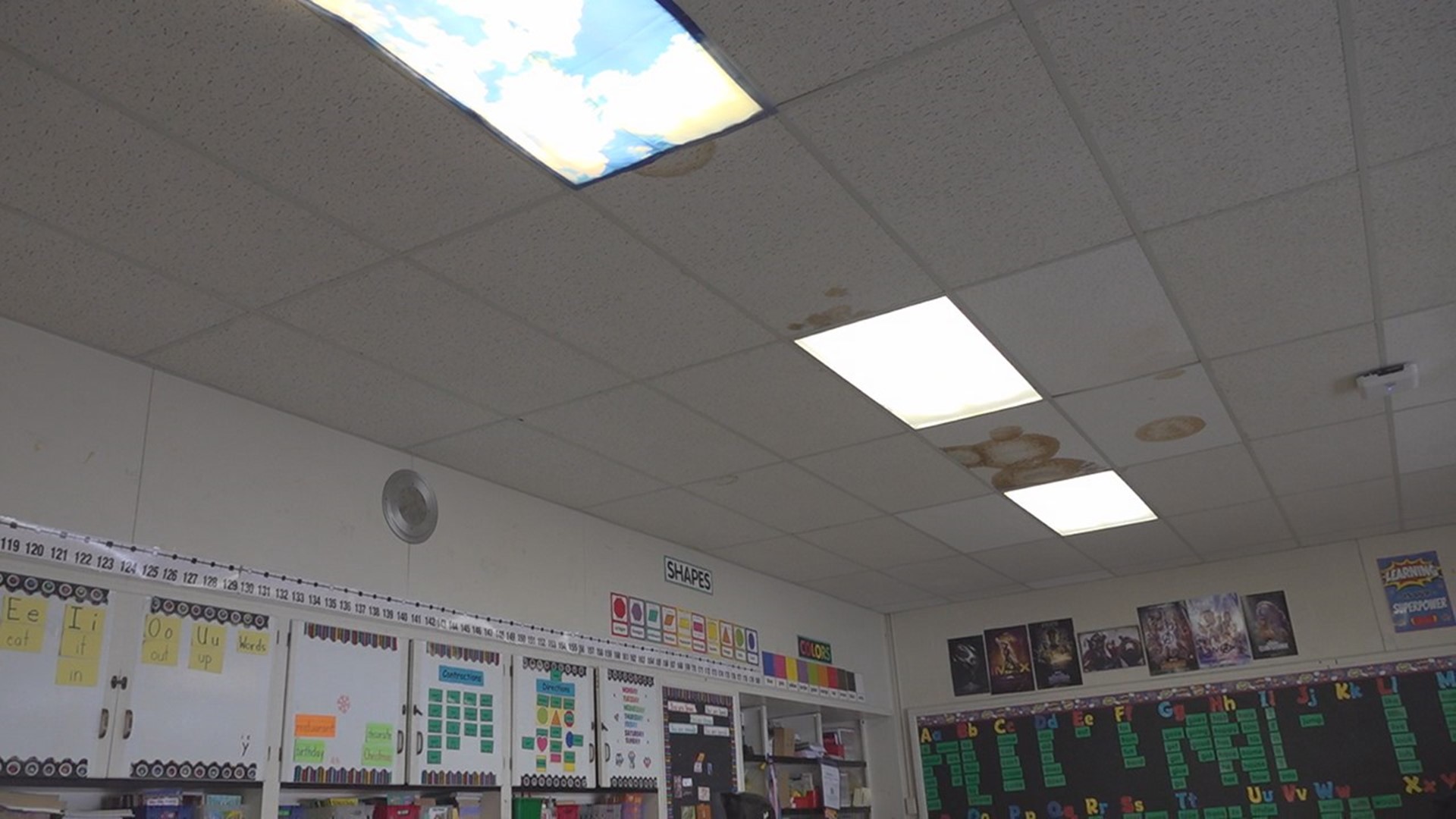LANCASTER COUNTY, Pa. — The original entryway doors at Burrowes Elementary School in Lancaster have been in use for nearly 70 years. Students have been walking through them since the school opened in the 1950's.
The building hasn't received a significant renovation since, and signs of its age are everywhere.
From the leaking ceiling panels in first-grade classrooms, to the broken wheelchair lifts, to the old, energy-sapping windows in a building without air-conditioning, School District of Lancaster Assistant Superintendent Matt Pryzwara said the school's problems don't end there.
"The unit ventilators, which they have back there, which are recycling the air or blowing heat, if our boiler is not working properly, if our boiler goes down, then the temperature gets out of control," he said.
The district has been applying band-aids for years and trying to adjust to changing technology.
Server boxes hang in the hallways, bringing the internet to teacher's laptops and projectors, but the school's aging electrical system is struggling to power it all.
"We have to be very cautious on how many things we can plug in the plugs here because it will blow," Przywara said. "It sounds pretty simple, but all of those things need to be intact."
"Some places have extremely outdated, borderline unsafe facilities, and that needs to be addressed," said Ashlie Crosson, a teacher at Mifflin County High School who was awarded Pennsylvania teacher of the year for 2024.
Crosson says her students notice the differences when they travel between schools.
"For them, it's very apparent. They walk into a building and sometimes they're like, 'oh, wow, my school is really nice compared to this.' Other times they walk into a building and they're like, 'Well, wait a minute, we don't have that and we don't have that.' What's that all about?," she said. " If our students across our state are feeling inadequate, or are feeling inferior, simply because of their zip code, that's a problem."
"Our buildings across the state, they're crumbling, and there's such a need right now," said Aaron Chapin, president of the Pennsylvania State Education Association. "When they have better conditions, they're going to learn a lot in a lot more effective manner."
State lawmakers in Harrisburg recognize the issue.
"I've asked, and I've not ever gotten an answer, why we have school districts that have facilities that are, you know, there's lead-based paint falling from the walls?" said Greg Rothman, a Republican state senator who serves parts of Perry, Dauphin and Cumberland Counties.
His question isn't easy to answer.
The School District of Lancaster has been planning to replace or renovate Burrowes Elementary and aging schools like it since 2007, wanting to address concerns in 20 buildings over 10 years.
Funding issues pushed the timeline back by at least a decade.
In that time, the project's total cost ballooned to more than $400 million dollars.
"We were relying on both the state share, which is normally about 25% of the cost that they would reimburse us through a program called PlanCon. That program no longer exists," Przywara said. "The rest, the 75% was on the backs of our local taxpayers here."
Przywara said about 87% of the district's students receive free or reduced lunches.
While the higher poverty rate means the district receives a higher percentage of its funding from the state, lower property tax revenue leaves little room to improve buildings.
A recent study from the Pennsylvania School Board Association found almost 19% of school districts see school facility maintenance as their biggest challenge this year.

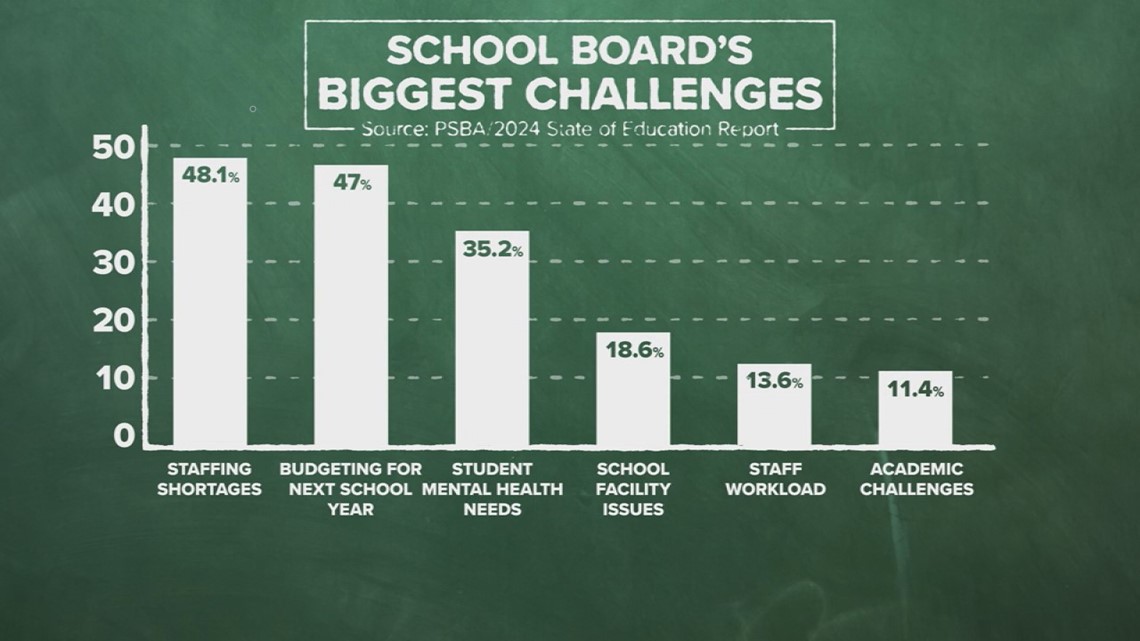
Meanwhile, 23.9% said facility construction is a top budget pressure.

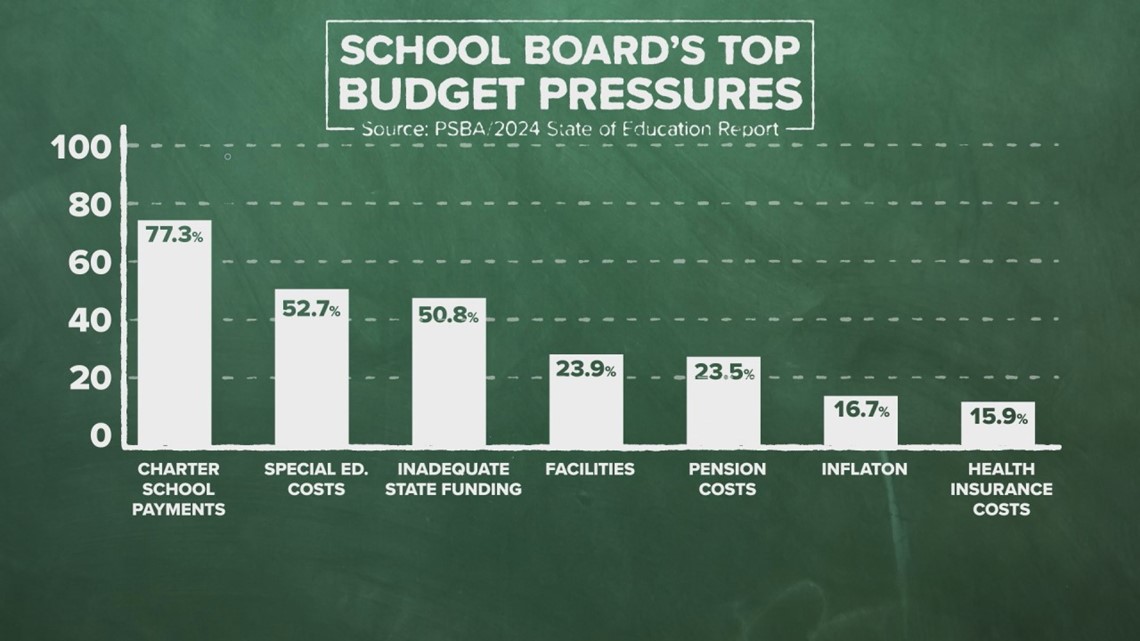
The author of the report says the School District of Lancaster's situation isn't unique.
"If you go to the rural and a lot of the urban communities, most of their education dollars come from the state," said Andrew Christ, PSBA's director of education policy. "In the suburban areas, they're able to generate revenue locally. So they're able to meet those mandated cost increases from pensions, charter schools, special education, and have money left over to invest in facilities."
Last year, Pennsylvania enacted two bills that created programs to address school construction needs, but right now there's no funding for those programs.
Democrats and Republican's from the Basic Education Funding Commission agree the programs should be funded and they want to start another program called PlanCon 2.0. It's a formula that would fairly reimburse schools when they complete construction projects.

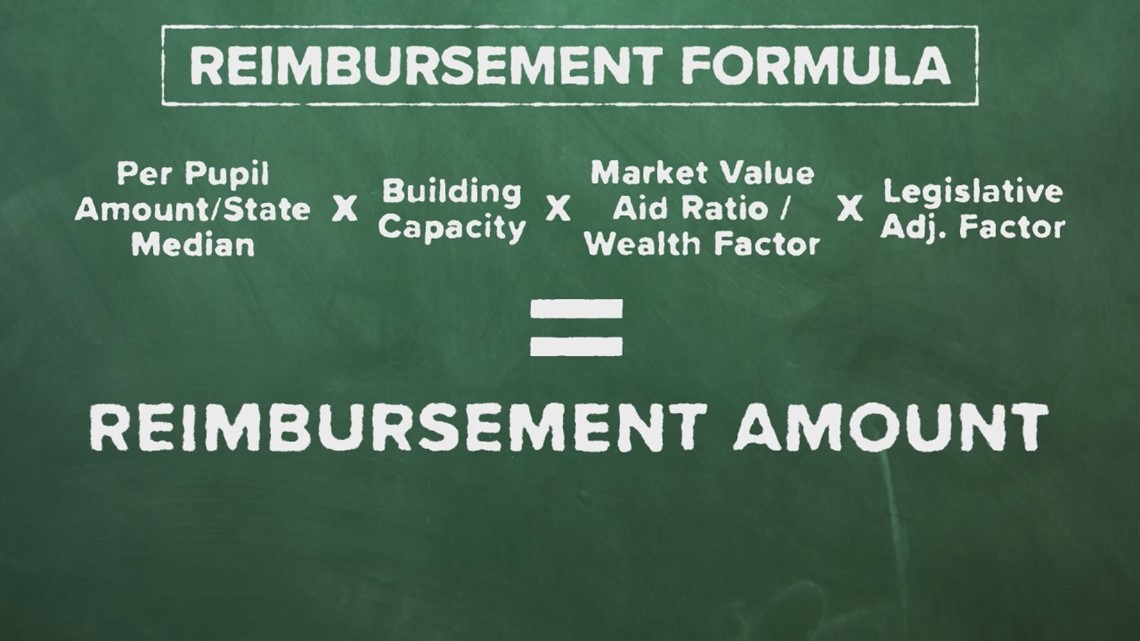
Both sides agree they need a better understanding of how much needs to be spent on school construction statewide, so it's likely they'll ask the Department of Education to conduct periodic studies.
What's not yet clear is how much funding will be agreed upon. The Democrat-backed majority report wants $300 million per year and $2.1 billion over the next seven years.

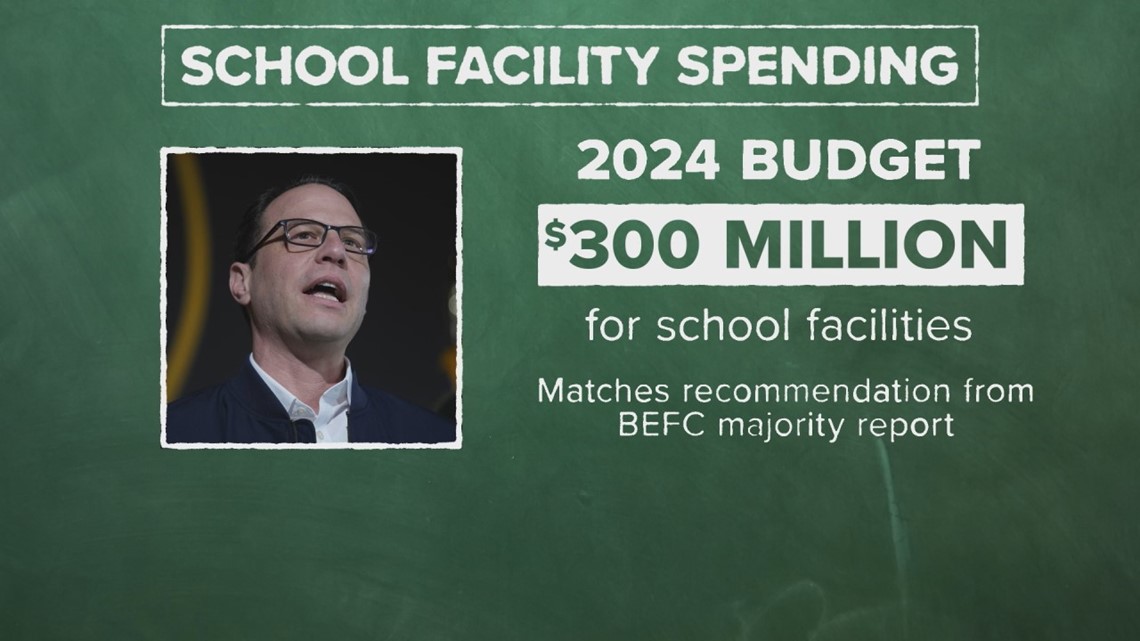
Governor Shapiro followed that recommendation in his recent budget proposal.
As co-chair of the Basic Education Funding Commission, Democratic State Rep. Mike Sturla had a heavy hand in the BEFC's majority report.
"Because we suspended programs to help schools, with their school facilities and buildings, we actually need to do something along those lines also," Sturla said. "We put another couple billion in to do school facilities so that kids aren't going to school in schools that have lead or asbestos or leaky roofs. Once the schools are then fully funded. Seven years from now, under this plan, we will then say to those schools, you know, we'll help but we're not going to pay for the most of this.
"I think it's a good start in terms of where they ended the old PlanCon program to get some new money back into schools where people have been pushing it off," Przywara said, speaking of the BEFC's majority report plan that the Governor backed earlier this month. "I'm sure there are many schools in the commonwealth that have deferred maintenance."
Still, State Senator Greg Rothman, a member of the Basic Education Funding Commission, questions what kind of maintenance is necessary.
"Is air conditioning really. . . I mean that's a first world problem," Rothman said. "I asked the one architect to justify an ethic was like, 99.9% of all the schools in the world don't have air conditioning."
"Our school day goes beyond the standard day for extended day programming, and we also have a host of summer programs," Przywara said, responding to Rothman's assertion. "That's what we're trying to do to meet the achievement gaps. For us, we need to have buildings that can be conditioned for all types of the environment; hot, cold, in between, all those things."
Rothman and his Republican colleagues worry Democrat's funding number may be too high, concerned it's digging in to the state's nest egg.
"The Rainy Day Fund is a one time expenditure and education, that's not what we do," Rothman said. "It'd be one thing if you say, okay, we're going to take the money and put it into a building a new school or fixing a school. But to create new programs, that's where we end up getting in trouble."
With another budget battle looming, Sturla acknowledges districts could suffer the most from a delay.
"We've got to smooth those numbers, again, trying to get some predictability and consistency for school districts who say, 'we're sitting here waiting for you guys to pass a budget, and we've already passed our budget, and then we have to go back in and reopen our budget and change funding,'" Sturla said. "'You haven't funding buildings and we don't know whether we're responsible for a building or you are,' so we're trying to create some consistency and stability."
"We're forced to then approve our budget before the state does and have to make decisions around academic programming or building projects, and in the case of last year, many months before the state actually says, 'here's what we're going to provide to schools,'" Przywara added.
Burrowes Elementary School will be demolished and rebuilt next year as part of the School District of Lancaster's next phase of construction.
We won't know the exact number school districts can expect to receive from the state for building maintenance until this summer at the earliest.
In the meantime, there are other concerns looming large.
Next week, FOX43 will dive into Pennsylvania's ongoing teacher shortage, including what caused it and the solutions lawmakers are considering.

